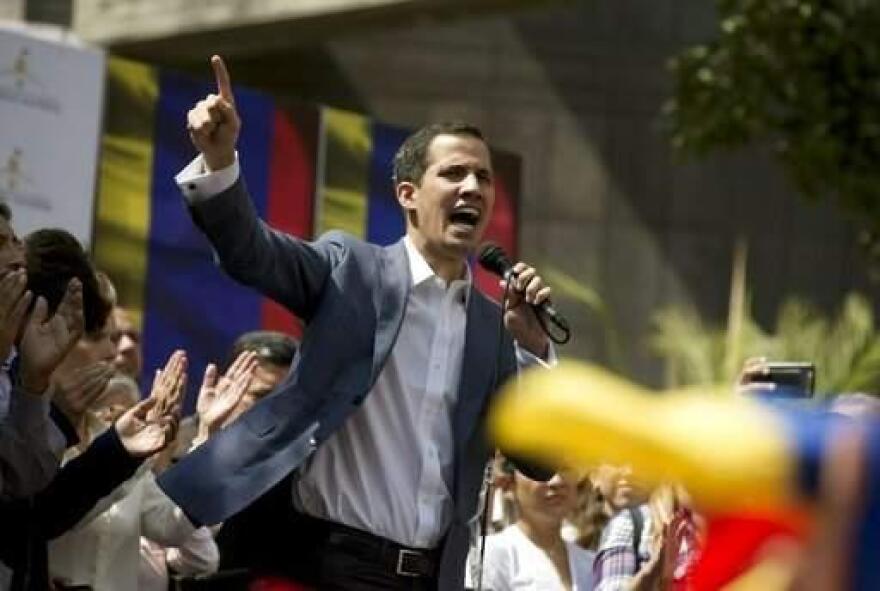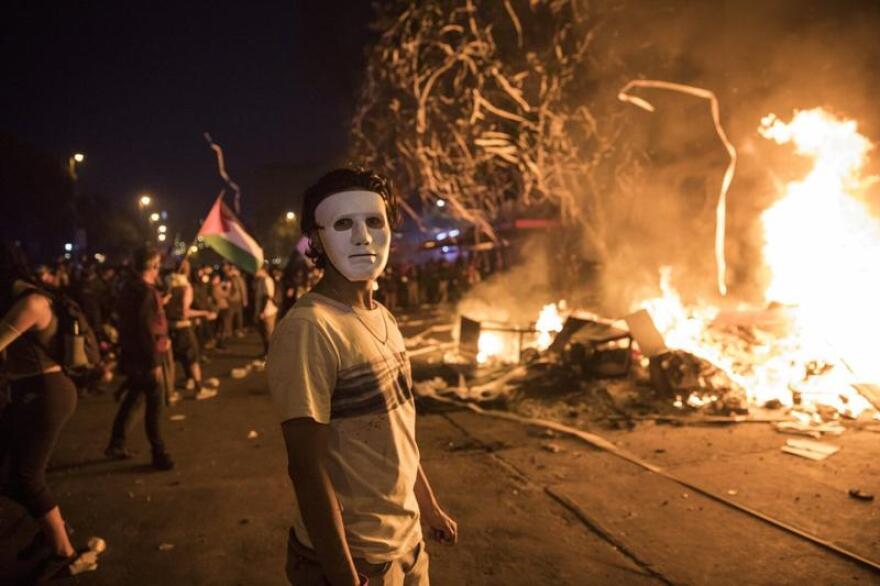It's hard to wrap your arms around everything that happened 2019 in Latin America and the Caribbean. It's even harder to find any good news — from the violent political unrest that rocked capitals from La Paz to Port-au-Prince, to a record number of fires that ravaged the Amazon rainforest.
To help make sense of 2019’s overwhelming wave of events, the Miami Herald's Pulitzer Prize-winning Latin America reporter Jim Wyss spoke from his new base in San Juan, Puerto Rico, with WLRN’s Tim Padgett.
Excerpts from their conversation:
So Jim, we each chose three of the year's top Latin America and Caribbean stories. First up for you is Hurricane Dorian. The Category 5 storm sat over the northern Bahamas for days and destroyed Abaco Island — killing hundreds of people. In the aftermath, people are talking a lot more about the relation between climate change and stronger hurricanes. Given what you saw on Abaco, should they be?

Well, just the scope of the devastation: You have to imagine shipping containers, dozens and dozens of shipping containers, being dragged across entire neighborhoods for more than a mile and just literally flattening stuff. It was a very surreal scene. So I think it's an unavoidable conversation to have at this point. Certainly the science has been pretty clear for a while that the warming oceans, the rising oceans, are making these hurricanes increasingly intense. I mean, Dorian was a 185 mile-per-hour hurricane…
And a 20-foot-high storm surge...
Exactly.
READ MORE: Populists, Immigrants, Refugees - and Women - Dominated Latin America in 2018
Next, I would point to the massive exodus of migrants escaping poverty, violence and climate change (again) in Central America to seek asylum in the U.S. The Trump administration believes it got the deluge under control by forcing Central American governments — as well as Mexico — to agree to hold these migrants. Will that really stop the flow in the long run?

The short answer is no. There are more factors dissuading migrants to make the very perilous trek. And yet we're still seeing record numbers – 850,000 apprehensions this year. People will always make the trek until you get the issues of the violence and the economy straightened out in Central America – particularly Honduras, El Salvador and Guatemala. These countries need help. And the U.S. can help itself by helping them.
Central Americans will always make the trek to the U.S. until their issues of violence and poverty are straightened out. And the U.S. can help itself by helping them. — Jim Wyss
I would agree. Moving up our list of the stories of the year in Latin America, you point to the wave of citizen protests still raging in countries like Chile and Haiti. It seemed to take the world by surprise, but should it have?
Yes, it was incredibly surprising. I mean, I think some would argue that it even began in August in Puerto Rico and then swept through, as you say, Ecuador, Bolivia, and Colombia and Chile are still going.
That's a good point. Remind us what happened in Puerto Rico.
Governor Ricardo Rosselló was part of a Whatsapp chat group with some of his closest advisors, and it got leaked. They were joking about some of the deaths that happened during Hurricane Maria, and it really bothered people. And this led to massive protests. He ended up having to step down. And some of those factors that brought him down, particularly the worries about the [Puerto Rican] economy, which been in a recession for 13 years, corruption — those are factors that have been playing out across the region.
DISASTROUS REGIME
I was most impressed by the result of one of those protests — Bolivia — where demonstrators reacting to voter fraud forced left-wing President Evo Morales to resign and go into exile. He'd ruled Bolivia for 13 years, and his overthrow looks like a big blow to the Latin American left. Is it?

Undoubtedly. Evo Morales was one of the most successful standard bearers of Latin America's left. And yet he tried to stay in too long and it really came back to bite him.
Speaking of left-wing regimes, on both our lists of Latin America's top stories of 2019 was Venezuela. Specifically, opposition leader Juan Guaidó’s dramatic declaration that he was Venezuela's legitimate president — and the decision by the U.S. and more than 50 other countries to support his claim. But there was just one problem. It really didn't amount to anything. Venezuelan President Nicolás Maduro is still entrenched in power. Jim, why wasn't Guaidó able to topple this disastrous regime?
I think it really came down to, at the end of the day, Maduro still has the support of the military high command. The military is an integral part of the government. They're an integral part of the economy. And trying to get them to turn on themselves is just a really tall order.

Finally, with the 10th anniversary of the Haiti earthquake approaching next month, what's the way out of the political violence and humanitarian crisis there?
I don't think anybody truly knows. What I would say is that while the U.S. needs to play a larger role there, it also needs to play a more balanced role there — perhaps do more to restrain the authoritarian tendencies of President Jovenel Moïse. Haiti's problems are the million-dollar question in the region.



